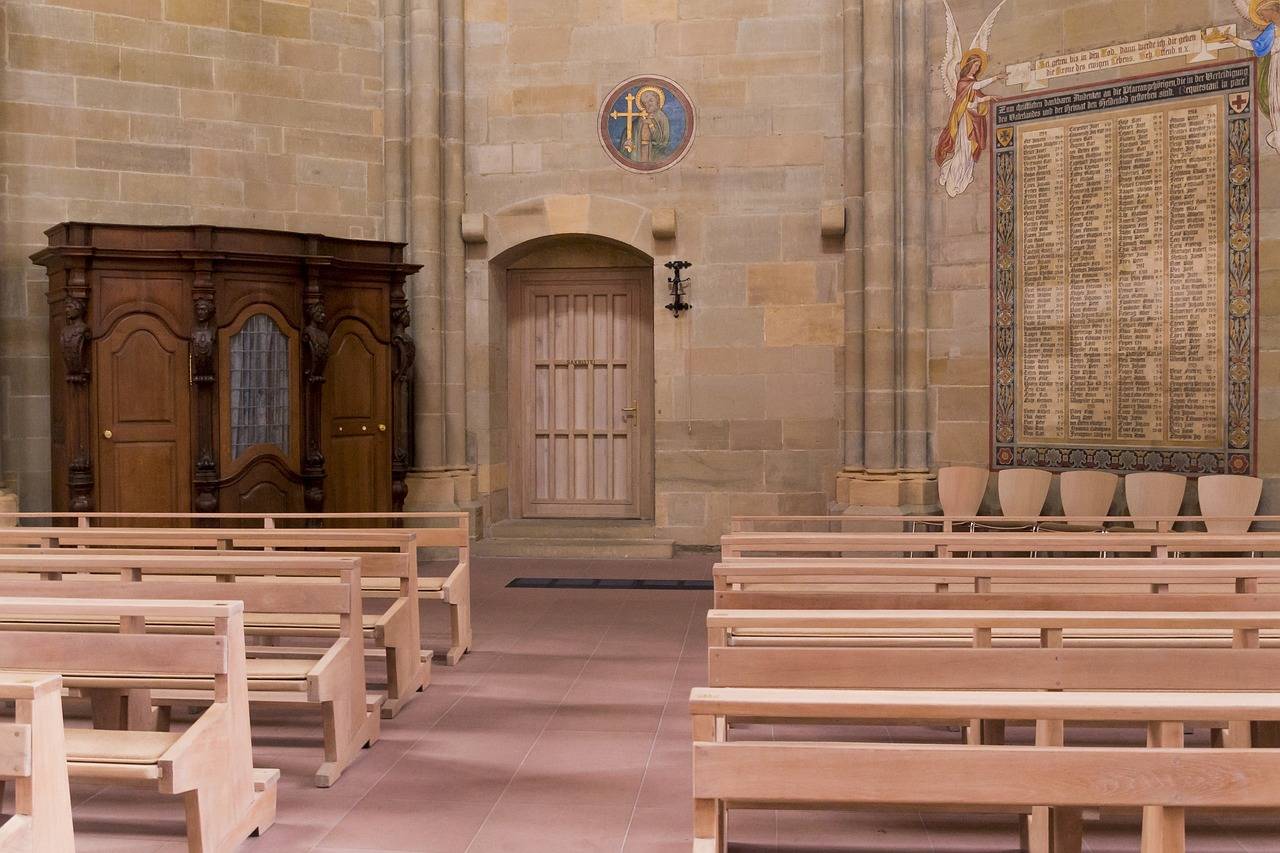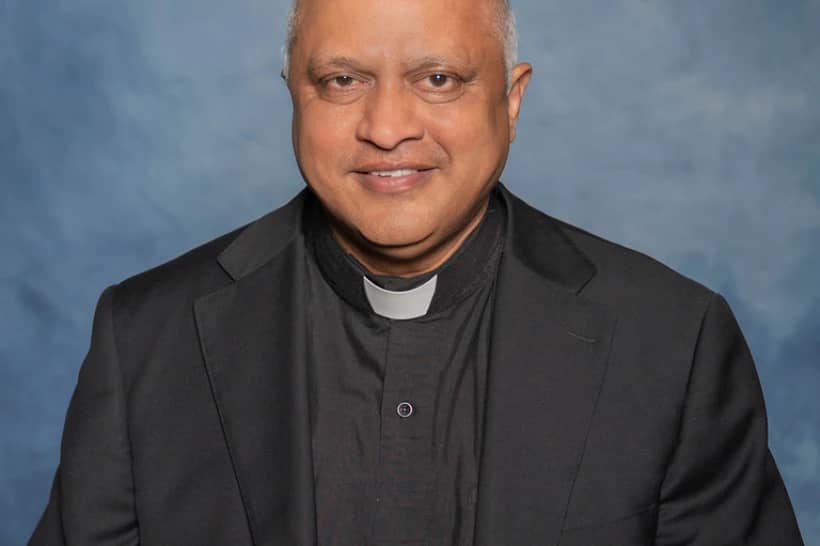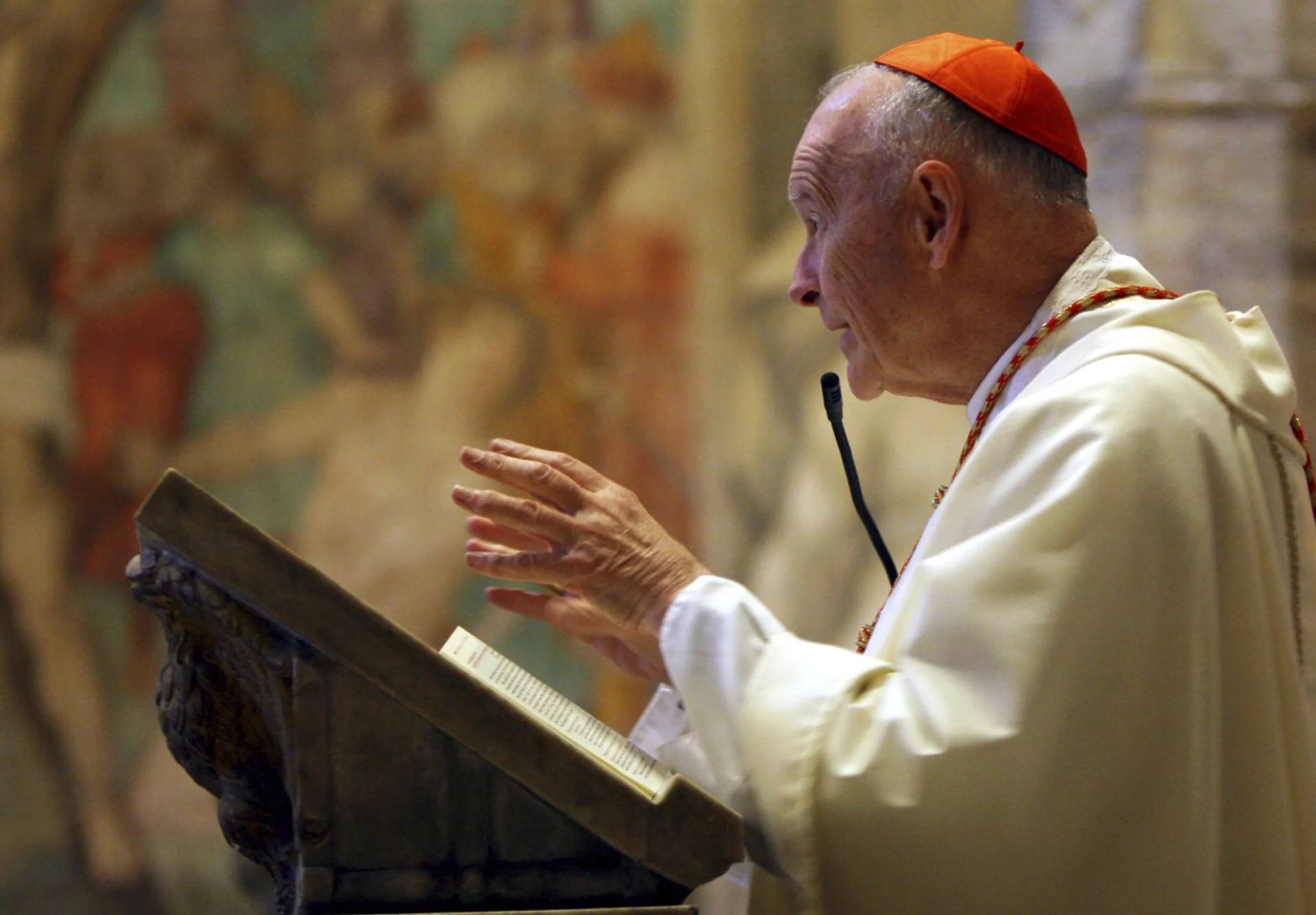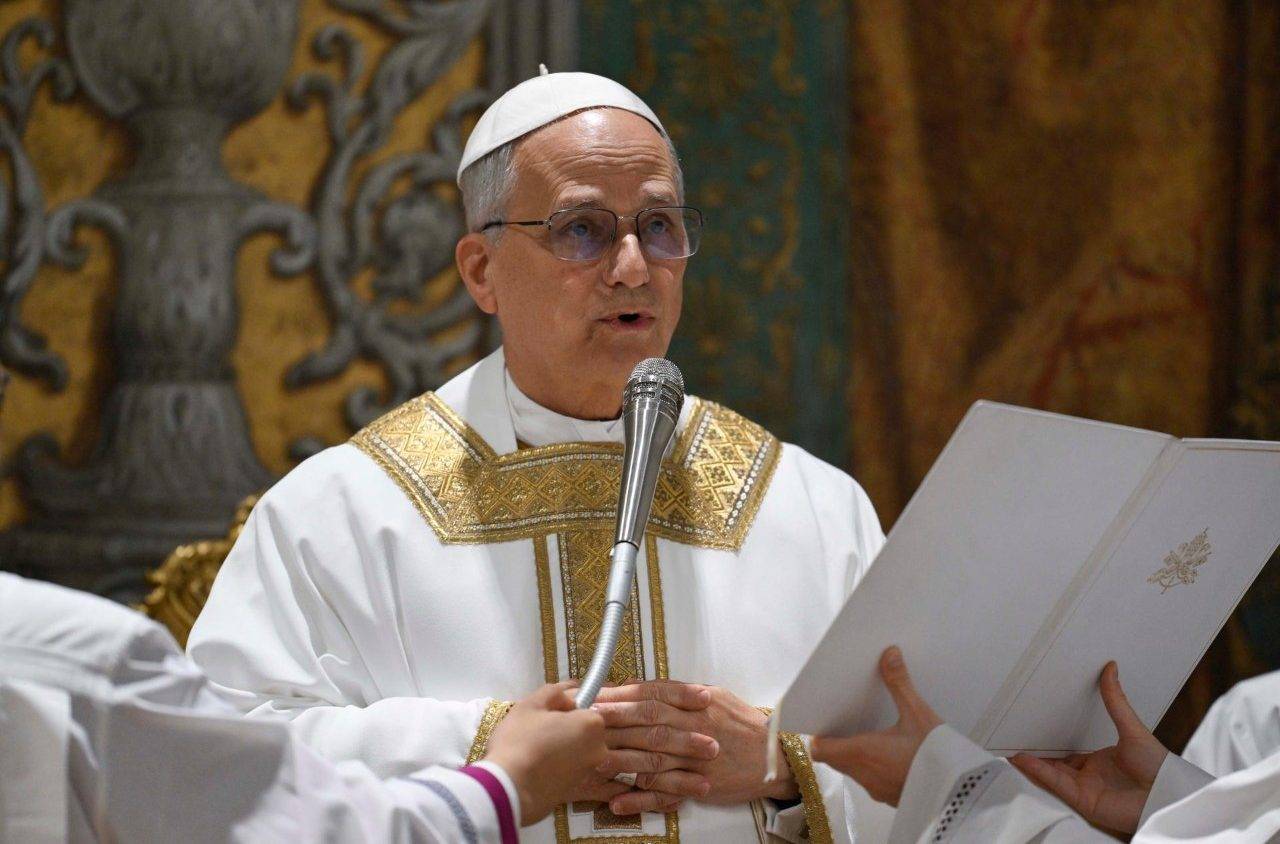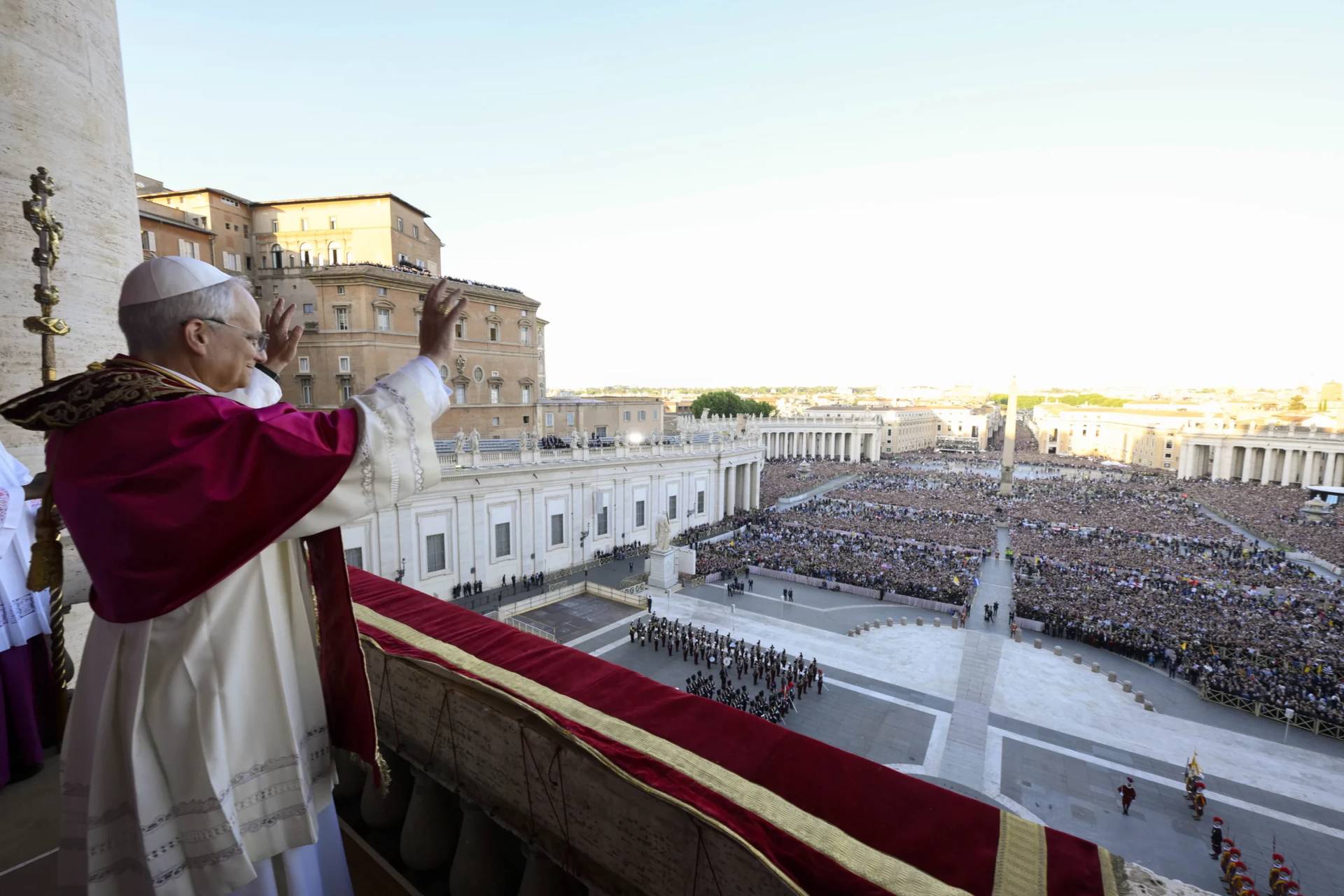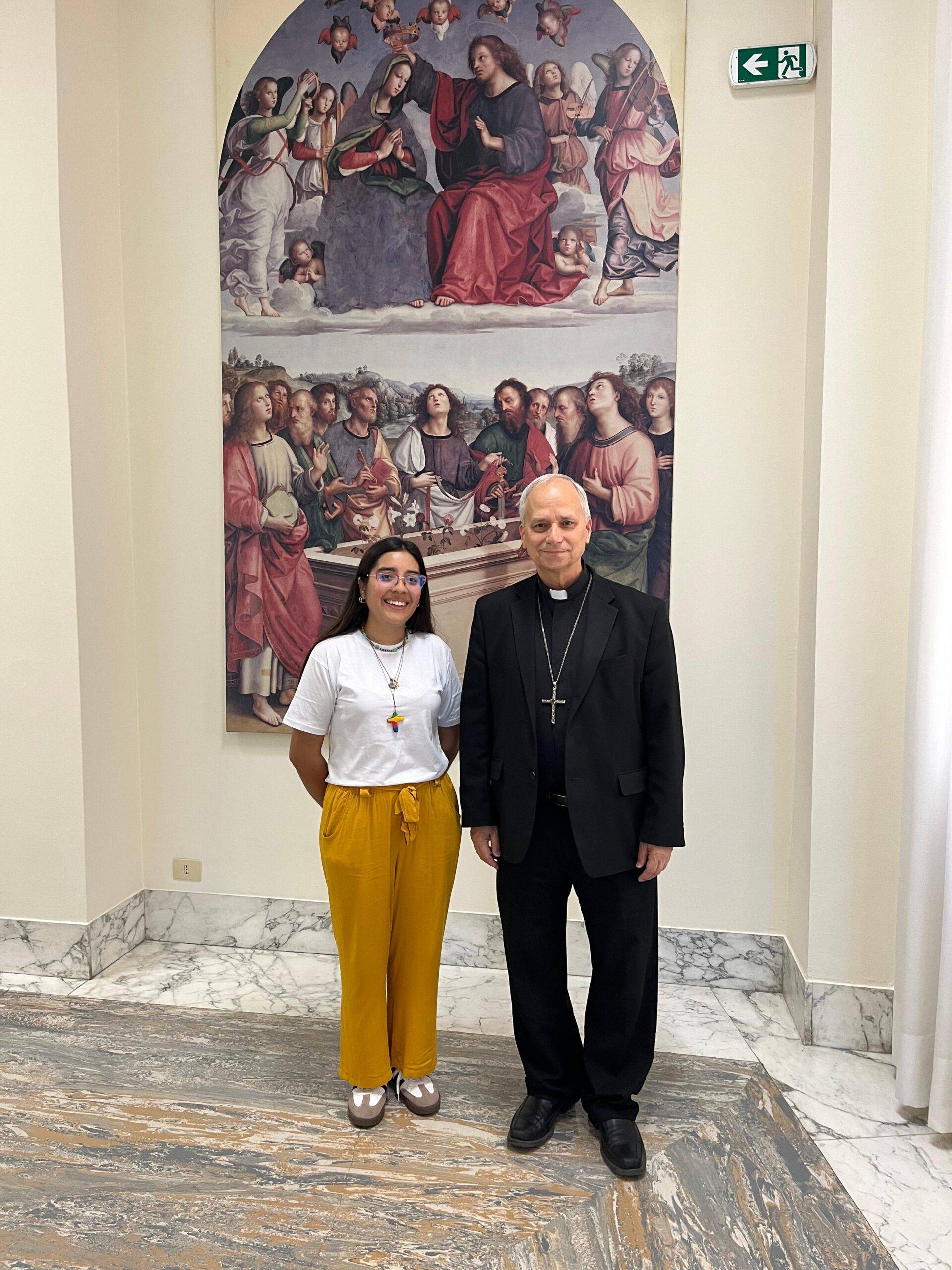MISHAWAKA, Indiana — Grocery shopping and Christmas-themed aerobics classes are not part of a typical high school curriculum. But at Marian High School, they offer important lessons for some students.
Marian has five additions this academic year, and Principal Mark Kirzeder hopes to see a similar increase next school year. They’re not new classes, but new students: those with mild intellectual disabilities.
The five students are the first of the school’s Bernadette Scholars, and they are making their mark at Marian.
Affectionately called “Bernies,” Bernadette Scholars are on nondiploma, certificate-of-completion tracks. Participants spend most of their day together in shared classes. As the school year progresses, they are further assimilated into typical classrooms.
Integrating the five students into Marian has thus far proven to be a successful transition.
Annie Ganser, Marian’s director of learning strategies, described the program as flexible, saying it strives to meet each student’s individual needs. “It focuses on life skills and achieving an optimal level of independence,” she explained.
Classwork is directed toward proficiency at everyday tasks for independent living rather than higher-level academics. Students are accepted into the program on a case-by-case basis, depending on their needs and the resources Marian has available. Expectations placed on the students are different from those of typical learners as well.
In addition to Ganser, four other staff members work directly with the Bernadette Scholars. Katie Dyer is the teacher for the Learning Strategies Center; Pam Sailor is the instructional assistant; Bret Bajdek coordinates the Learning Lab; and Cynthia Spalding is a teaching aide.
The staff collaborates to develop creative ways to reach the students. A recent unit on meal planning and preparation incorporated health, math and community living skills into a grocery trip. Taking students out of the classroom gives them the opportunity to put the skills they are learning into action, such as reading food labels and comparing prices. The students find recipes, go to the store with a staff member to purchase the ingredients, and later prepare the meal in the home economics lab.
Although the Bernies have their own classroom and workspace, they are becoming a valuable part of the Marian community. Dyer said each student brings something special to the campus through their friendly smiles and warm hugs.
Their interests are as varied as the rest of the student population.
Bernadette Scholar Nick Becker is vice president of the freshman class, and the young man with Down syndrome is cheerful and friendly. He walks Marian’s halls with a sense of self-assurance. It’s a place where he practically grew up.
Becker is the second-youngest of seven siblings, five of whom went to Marian. When asked how he feels about his school, he said he’s “happy to be here” even though the school day is too long for his liking.
Becker attended St. Matthew Cathedral School in South Bend, a feeder school for Marian, so he already had many friends among his classmates. Remarkably, he chose theology as an elective and he was placed in a mainstream sophomore theology class.
Morgan Minder is on the swim team. She described her teammates and coaches as incredibly welcoming.
Leo Vesprini put together an intramural volleyball team that filled in five minutes. He considers himself an expert at making friends and often will approach other students, engaging them in conversation or inviting them to play card games.
Mary Helfrich loves anime, a type of hand-drawn and computer animation, and is involved in the school’s anime club that her older sister started. She also is interested in photography and has enrolled in an art class. Classmate and fellow Bernie A’layah Newsome said that drumline was her favorite class.
Ganser believes that the presence of the Bernadette Scholars benefits the entire student population. It provides an opportunity for mainstream students to stop and visit, thereby taking a leadership role.
The program is “helping them understand that disability means different ability,” she told Today’s Catholic, newspaper of the Diocese of Fort Wayne-South Bend. “The (typical students) are amazed by what the Bernies can do.”
She predicted ongoing benefits for all students at Marian as the program increases.
“When we started, Mr. Kirzeder wanted to make sure the kids would be safe, shown kindness, and that others were open and accepting,” she said. They have been that, she said.
Under Indiana law a student placed on a non-diploma track cannot be moved to a diploma track, Ganser said. “We make sure that our families know that by opening some doors, others must close,” she said.
Although in some instances a student could handle the intellectual aspect of typical classes, the struggle with the workload might outweigh potential benefits. So the staff works closely with families to meet the goals parents have for their child.
Preparing students for potential employment is a large part of the program. The students have a work period included in their day in which they spend some time restocking and cleaning areas of the cafeteria. At some point in the upcoming year, they will begin learning administrative skills such as answering phones.
A great deal of importance is placed not only on teaching work skills but also how to accept criticism with grace and to arrive on time for work, program directors said.
– – –
Barton is a staff writer at Today’s Catholic, newspaper of the Diocese of Fort Wayne-South Bend, Indiana.
Crux is dedicated to smart, wired and independent reporting on the Vatican and worldwide Catholic Church. That kind of reporting doesn’t come cheap, and we need your support. You can help Crux by giving a small amount monthly, or with a onetime gift. Please remember, Crux is a for-profit organization, so contributions are not tax-deductible.











